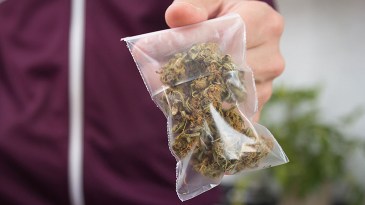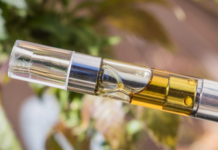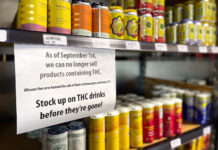
A task-force convened by Democratic Gov. Roy Cooper is recommending the state significantly liberalize its marijuana penalties.
The task-force’s recommendations include fully decriminalizing the possession of up to 1.5 ounces of marijuana by making such possession a civil offense and expunging past convictions through an automatic process.
Under state law, the possession of up to one-half ounce of cannabis is partially decriminalized — with violators subject to a $200 fine and a criminal record, but no jail time. Offenses involving the possession of more than one half-ounce of marijuana, but less than 1.5 ounces is punishable by up to 45 days incarceration. In 2019, nearly 10,000 North Carolinians were convicted of marijuana-related possession offenses; over 60 percent of those convicted were people of color, despite them making up only 30 percent of the state’s population.
North Carolina is not among the states that have enacted legislation explicitly facilitating the expungement of past marijuana convictions.
Commenting on the task-force’s recommendation, Attorney General Josh Stein said: “You cannot talk about improving racial equity in our criminal justice system without talking about marijuana. White and Black North Carolinians use marijuana at similar rates, yet Black people are disproportionately arrested and sentenced. Additionally, it is time for North Carolina to start having real conversations about a safe, measured, public health approach to potentially legalizing marijuana.”
Separate recommendations call for convening another task-force to explicitly study the legalization of marijuana for adults.
“Marijuana policy reform and expunging past cannabis-related convictions is a necessary component of any criminal justice reform plan,” NORML’s Deputy Director Paul Armentano said. “Kudos for members of the Governor’s task force for emphasizing the need for legislative changes in this direction — changes that will provide necessary relief to tens of thousands of North Carolinians, particularly communities of color, who have been and continue to be disproportionately impacted by the failed policy of cannabis criminalization.”
The task force is scheduled to send its full recommendations to Gov. Roy Cooper by December 15.











